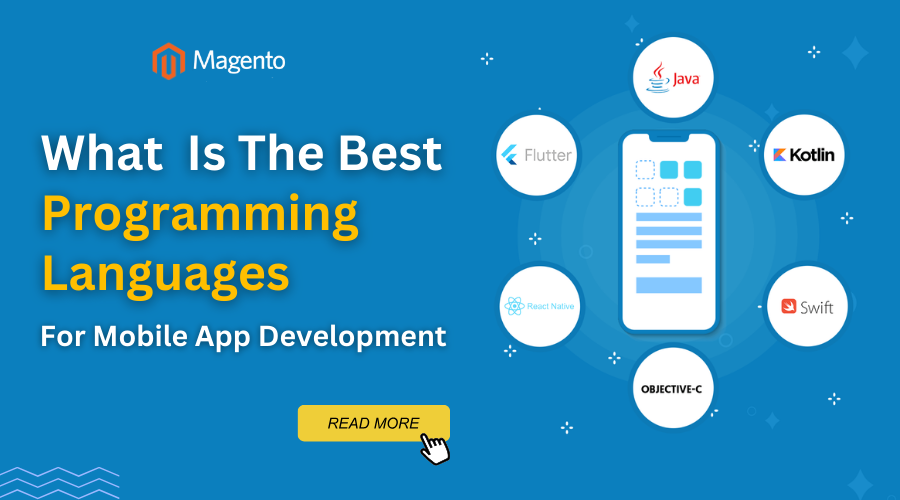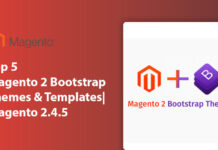
As 2025 continues to pass by, it is now crucial for the companies and the developers for being ahead of the curve by ensuring that they choose the right mobile app development programming languages. After all, the new techs & frameworks are emerging every day. Considering it, the given article will help explore it in detail. It will also help you to make an informed decision regarding the choice of best tools for the next project.
Table of Contents
I. Mobile app development programming language: Native Languages
Native languages are mobile app development’s backbone. It offers an unparalleled performance and a proper control for the applications that are platform-specific. Kotlin and Swift are two of the standout native languages.
1.1. Swift
Apple-curated Swift is an iOS programming language that is available today. It is known for its security features, speed, and expressive syntax. It enables the developers from iPhone app development company for creating robust applications for the Apple ecosystem, which is ever-evolving. A key advantage of Swift, it is it’s ability for streamlining development proves, therefore allowing the developers to identity and to resolve concerns in a quick manner.

Some benefits of Swift are:
- Enhanced security features
- Stronger community support
- Easy to write and read
- High performance
Disadvantages:
- Limited to the Apple platforms
- Experienced developers- smaller pool in comparison to the other languages
1.2. Kotlin
Developed and endorsed by JetBrains and Google, respectively, Kotlin is one of the most powerful and a very versatile mobile app coding languages for the Android app developers. The app’s ease of use and simplicity make it an excellent choice for all-level developers. Also, interoperability of Kotlin with Java together with its ability of it for supporting multiple development domains, it makes it attractive choice.

Certain benefits of Kotlin are:
- Readable and concise syntax
- Stronger support from Google
- Open and free-source
- Interoperable with Java
Disadvantages:
- Slower compilation speed in comparison to the Java
- Smaller community in comparison to Java
II. Programming languages: Cross-Platform Languages
These languages are getting a lot of popularity because of their ability for streamlining the development process. It does so by allowing the developers to write the code, once and then deploy the same across varied platforms. The top mobile app development programming languages here are React Native and Flutter.
2.1. Flutter
Launched by Google, Flutter is one of the mobile app SDK. It helps the developers in creating a visually appealing & also a high-performance application, for both the Android and iOS platforms. It uses Dart as the primary programming language and even offers a rich library of tools and widgets for creating immersive user experiences. The hot reload feature of the framework helps the developers see the changes in real-time, therefore speeding up the process of development.

Certain Flutter benefits are:
- Stronger community support
- High performance- across varied platforms
- Flexible and expressive UI
- Faster development cycles
Disadvantages:
- 3rd-party libraries are limited in comparison to the native solutions
- Larger size of the app
2.2. React Native
One of the top programming languages for mobile app development in 2025, React Native is one of the same. It is developed by Facebook. It is one another cross-platform network that’s popular and that allows the developers in building the mobile apps using React and JavaScript. The ability of React Native for reusing the code across platforms, it makes it quite an efficient choice for anyone looking to save the resources and time. The framework further offers a robust feature set for creating reusable and detailed components.

Benefits of using Reach Native:
- High performance
- Richer ecosystem of tools and libraries
- Stronger support for community
- Code reusability is possible across varied platforms
Disadvantages:
- Performance is quite low in comparison to the other native solutions
- The steeper learning curve for the new developers of React or JavaScript.
III. Other programming languages for mobile app development

Apart from the cross-platform languages and native languages discussed above, there are varied other programming frameworks and languages that are considerable for application development. A brief about them is provided below:
3.1. Rust
It is a statically typed language. It has gained its recognition because of its robust features and the memory safety. Now, while it wouldn’t prove to be the conventional choice, when choosing a programming language for apps, the concurrency and the resource-constrained environmental support, it make it one of the attractive choices for varied applications.
The benefits of Rust:
- Memory safety
- Stronger support for the community
- High performance
Disadvantages of Rust:
- Limited adoption within the development of mobile applications
- Steeper learning curve
3.2. Go (Golang)
This is Google developed language that is known for the offered efficiency and simplicity. Even though it has not been widely adopted in mobile application development, the faster compilation times and the developer-friendly features of this language make it one of the promising choices for the future.
Some benefits of Go:
- Clean and simple syntax
- Stronger support for the concurrency
- Faster compilation times
Disadvantages of Go:
- Limited adoption within mobile app development
- It has a smaller community as compared to the other languages
3.3. Java
As one of the mobile app development programming languages, it is one of the oldest and most reliable ones. The extensive tools and libraries ecosystem, together with scalability and its resilience, it all makes it one excellent choice for the enterprise-grade apps.
The benefits of Java:
- Higher scalability
- Stronger community support
- Stable and mature language
- Extensive tools and libraries
The disadvantages of Java:
- Slower performance in comparison to the new languages
- Verbose syntax
3.4. C#
C# is a Microsoft-developed programming language. It helps with the cross-platform development. When it gets used together with Xamarin, it allows the developers in creating the native apps for Android, iOS and Windows platforms, thereby maximizing the code productivity and reuse.
Some key benefits of C# are:
- Stronger support from the Microsoft
- The richer ecosystem of libraries and tools
- Stable and mature language
- Code reusability across varied platforms
C# disadvantages are:
- Limited community in comparison to the other languages
- Larger-size of apps
Final Words
To choose between the best mobile app development programming languages, it is crucial for the project’s success. Whether one opts for the native languages, cross-platform languages, or any other robust options, each of these languages offers unique challenges and benefits. It is only with careful consideration of the specific requirement of the project and each language’s strengths that it’s possible to make the informed decisions that would help in setting up the success of app within the competitive mobile app development landscape. So, choose wisely.












![[SALE OFF] Discount 30% All Premium Extensions On Christmas And New Year 2025 christmas-and-new-year-2025](https://landofcoder.b-cdn.net/wp-content/uploads/2024/12/christmas-and-new-year-2025-1-218x150.png)






